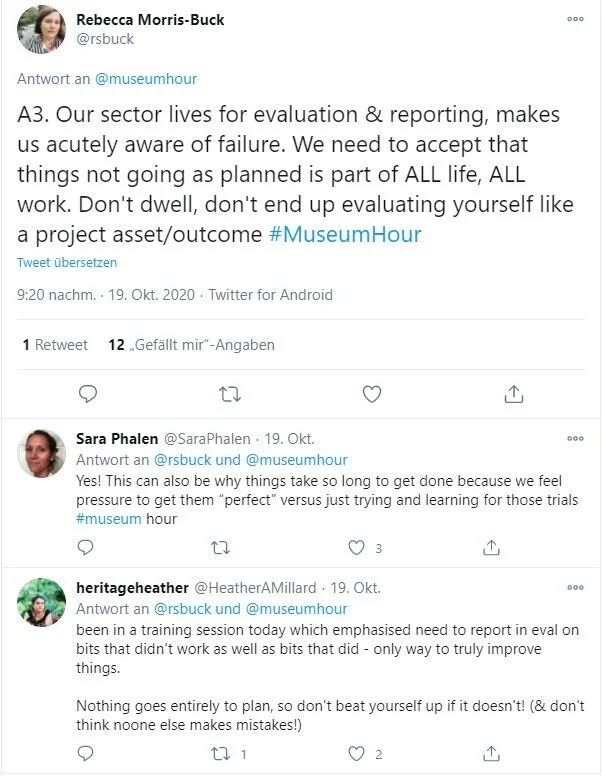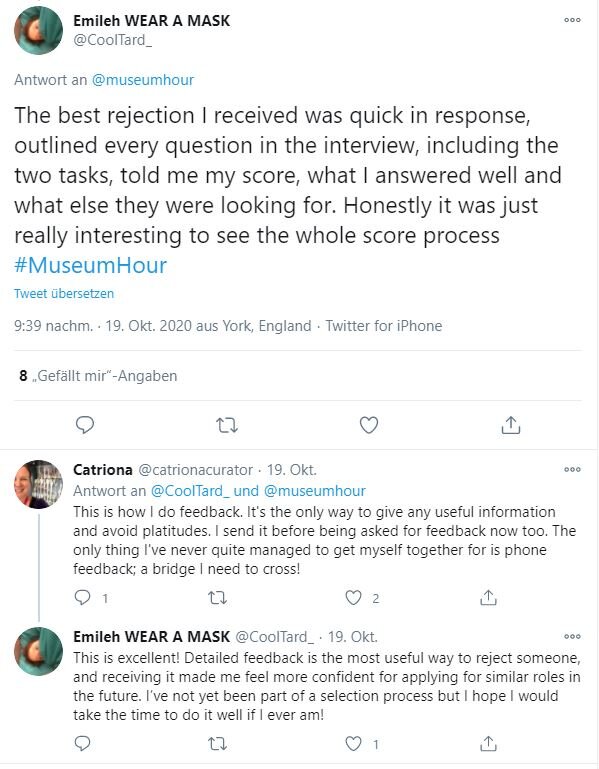#MuseumHour: Failure as a Museum Worker
/On October 19, 2020 I got to host a #MuseumHour on the topic of failure as a museum worker. #MuseumHour is a platform on twitter facilitating discussions within the museum industry. The team recently updated their Manifesto & Guide, reflecting even better the changes our professions have been going through.
This has been the second #MuseumHour discussion I’ve hosted this year, the first one was on Success as a Museum Worker and the latest one seemed like a continuation, because let me state one thing upfront success and failure are shaped through metrics that are influenced by race, class and gender!
It’s a topic I’ve been working over the past years, you can find an ongoing interview series I’ve been conducting with museum and creative professionals on What success Looks Like to Them here> or take a look at some of my thoughts on labor issues and art as labor>
It’s been a rich and deep discussion and I want to thank everyone who participated for their honesty and vulnerability in the answers they’ve shared. THANK YOU! In the following I’ve collected several of the tweets so that these conversations don’t get lost.


















